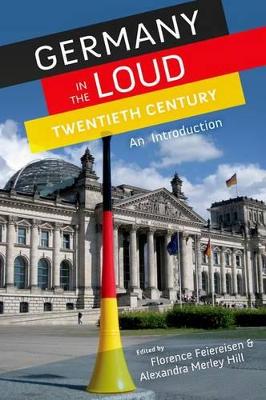Germany in the Loud Twentieth Century seeks to understand recent German history and contemporary German culture through its sounds and musics, noises and silences, using the means and modes of the emerging field of Sound Studies. German soundscapes present a particularly fertile field for investigation and understanding, Feiereisen and Hill argue, due to such unique factors in Germany's history as its early and especially cacophonous industrialization, the
sheer loudness of its wars, and the possibilities of shared noises in its division and reunification. Organized largely but not strictly chronologically, chapters use the unique contours of the German aural experience to examine how these soundscapes - the sonic environments, the ever-present arrays of noises
with which everyone lives - ultimately reveal the possibility of "national" sounds. Together the chapters consider the acoustic national identity of Germany, or the cultural significance of sounds and silence, since the development and rise of sound-recording and sound-disseminating technologies in the early 1900s Chapters draw examples from a remarkably broad range of contexts and historical periods, from the noisy urban spaces at the turn of the twentieth century to battlefields and concert
halls to radio and television broadcasting to the hip hop soundscapes of today. As a whole, the book makes a compelling case for the scholarly utility of listening to them. An online "Bonus Track" of teaching materials offers instructors practical tips for classroom use.
- ISBN10 0199759383
- ISBN13 9780199759385
- Publish Date 22 December 2011 (first published 2 November 2011)
- Publish Status Active
- Out of Print 17 May 2021
- Publish Country US
- Imprint Oxford University Press Inc
- Format Paperback
- Pages 200
- Language English
